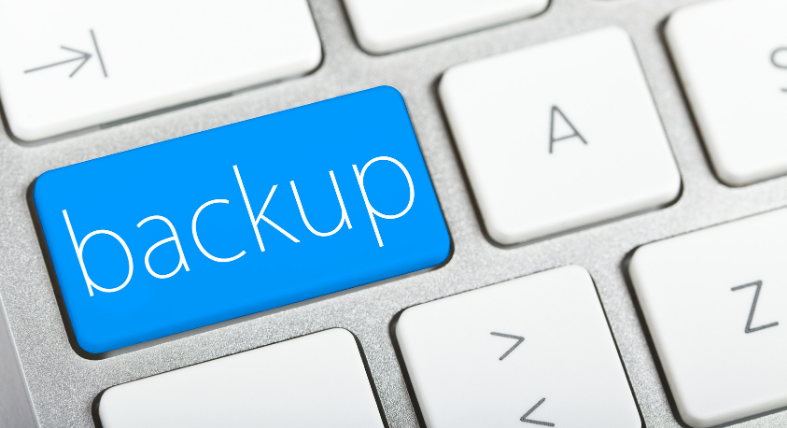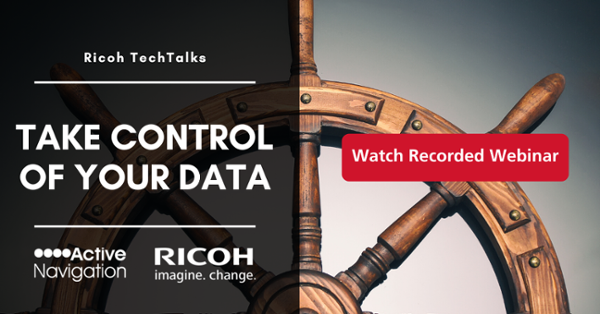What if Backup Plan Questions Funny
Editor's Note: This post was originally published on March 31, 2020. Today is World Backup Day — an annual reminder to backup all your critical data. You likely know how important it is to routinely back up all your devices; it's a trusty way to mitigate risk, anticipate unexpected events and align your work and your organization's continuity plan. However, as someone who's worked with data collection for litigation for over a decade, I can tell you one thing with certainty: not all backups are equally useful. How you can avoid a data disaster depends on a proper backup plan that supports all the elements of your business with a program that gets the job done (at Ricoh, we use ActiveNav). To get started, here are some helpful questions to ask yourself to evaluate where your organization is at: You can do a mass backup annually or replicate your entire disk space every single night – or anything in between. To determine what's best for your organization, it's essential to balance the cost of disk space against the risk of losing your data since your last backup. You might think the obvious answer is to "be able to bring data back", but unfortunately that's not always possible. Data stores can corrupt and backup tapes can become obsolete and unreadable. The last thing you want is to end up with a backup tape with all your critical data with no machine that can read it. Keeping your backups active and up-to-date can be a life saver. Depending on your backup plan, there's a chance you could be backing up the same data over and over, creating huge amounts of duplication. There are several ways to avoid this, each with their own pros and cons: While this one may sound like a no-brainer, I can't count the number of times I've processed massive amounts of data only to find a tiny subset is actually in scope for review. Being able to search your backups (prior to processing all the data in them) allows you to find the data that's potentially relevant before you spend money on processing that data. Here's how ActiveNav helps us simplify the backup process: In my career, I've seen sets of backup data from many different companies. One of the most common things I've found is that there's often massive amounts of duplication. In one instance, a company backed up every single one of their employees' data every six months but failed to de-duplicate the files causing the exact same data to be recorded dozens of times. By using ActiveNav, we found out that over 85 per cent of the data could be deleted without losing a single byte of unique information. On top of that, the ActiveNav program told us what exactly needed to be deleted and could even delete it for us. What's more, the tool allowed us to set up batches of documents to send to users to review so they could decide if they want to keep multiple copies of some files. Searching backup data can be difficult. If it's in a form that ActiveNav can crawl, it can give you the search capabilities you might want. While ActiveNav doesn't keep an active index, whenever it scans the locations its set to scan (or when you setup a manual scan), it allows you to enter the search criteria you want. This includes anything from simple search terms to complex Regular Expressions. ActiveNav will search the data as it scans it, and tag/flag the files that hit on any of your searches. Exporting only the data you need from backup can be tricky – especially if you need it in its original folder with its metadata unchanged. ActiveNav can help here as well. It lets you export whatever data you want by using your search hits, data locations and more. It will also maintain the folder structure, file names and even the metadata of the files. That means that you can copy to wherever you want, in a format ready for processing in any eDiscovery processing tool. If a potential litigation comes up, the last thing you want to worry about is trying to restore your previous backups in a way that works for your review process. ActiveNav enables you securely backup your critical information while staying ahead of the curve. If you have questions about your data backup plan or would like to learn more about ActiveNav, reach out to us today. 
1. How often do you backup your devices?
2. What is your goal of the backup?
3. How do you avoid duplication?
4. Can you search your backups?
De-duplication
Searching
Export/Use

Topics: Tuesday's Tip, Michael Truelove, Unstructured File Analysis
Source: https://www.ricohediscovery.com/blog/whats-your-backup-plan
0 Response to "What if Backup Plan Questions Funny"
Publicar un comentario